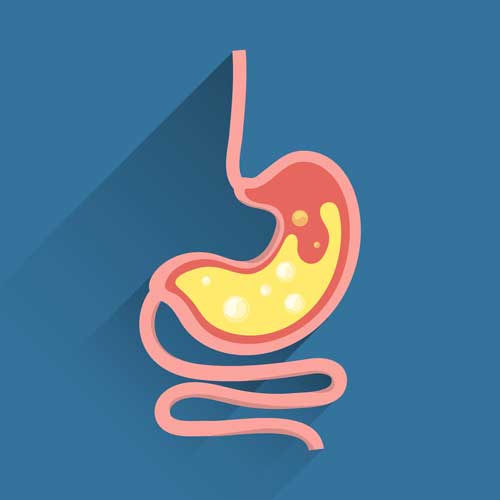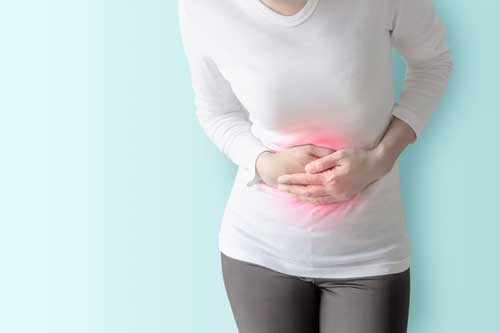
The Secret to Better Health Lies in a Happy Gut
By Qlife Editorial
Do you know that many neurological and psychiatric disorders such as ADHD / ADD, autism, dyslexia, Alzheimer’s disease, depression, bipolar disorder, and anxiety are strongly correlated with your digestive system? Or do you know that skin diseases like acne, dermatitis, eczema, and psoriasis are more than just skin deep and can be traced back to the gut? We have recently begun to understand the extent of the role of the gut in human health and disease. Many researchers now believe that support for intestinal health will become one of the major goals of 21st-century medicine.
Your gut plays an important role in your immunity and your health. About 80-85% of your immune cells are in your digestive system. Your gut is a huge ecosystem of one trillion bacteria; Overall, they weigh about six pounds. Some of these bacteria are beneficial and others are harmful. Good bacteria help digest food, assimilate, create nutrients and protect us from toxins. Without them, our health will be in great danger.
This bacterial colony is separated from the rest of the body by the Gut lining. The main task of this lining is to let in the essential nutrients from your food and keep out all the harmful substances such as toxins and undigested food particles from the rest of the body.
Common Gut issues
Unfortunately, our Gut health has been challenged by poor diet and a modern lifestyle and overuse of prescription medications (antibiotics, antacids, birth control pills, NSAIDs, steroids) for many of us, this which has led to a proliferation of bad bacteria and intestinal permeability, a condition called Leaky Gut. Here are some of the most common gut problems:
Low Stomach acid

Likely causes include chronic mental stress, which reduces stomach acid production and overuse of heartburn drugs, which neutralizes stomach acid or suppresses its production. In a healthy situation, when your body can produce enough acid, the stomach is extremely acidic in the presence of food. The pH can be as low as 1 and the acid will destroy most of the harmful bacteria in the diet. However, if you do not produce enough acid, the pH can reach 4 or 5, which can allow the bad opportunistic bacteria to survive and thrive within your intestinal tract.
Abnormal gut flora with an overabundance of bad bacteria

In a healthy gut, their numbers are limited and strictly controlled by beneficial bacteria. But when this useful flora is weakened and damaged, the opportunists get out of control. A common opportunistic flora is Candida albicans yeast. Candida infection is a direct result of abnormal gut flora. Common causes include the excessive use of antibiotics (also found in commercially raised meat, milk and eggs), which have a devastating effect on the good bacteria, and a diet rich in sweet foods and processed carbohydrates and lacking in fermented foods that are rich in live cultures that can help to inoculate the gut with good bacteria.
Leaky Gut

Most people who have excessive growth of the opportunistic gut flora have some degree of intestinal permeability. Bad bacteria constantly produce toxic substances that are byproducts of their metabolism. Such bacteria damages the integrity of the gut wall barrier and make them permeable for toxins to leak through. Once toxins circulate in the lymph and bloodstream, they cause problems in various organs of the body, especially in the brain and skin. When you have a leaking gut, partially digested foods also pass through the gut wall into the bloodstream, where the immune system recognizes them as foreign and attacks them. This is how food allergies and intolerances develop.
Why is digestion important for a healthy gut?
Digestion is important because your body needs nutrients from food and drink to function properly and stay healthy. Proteins, fats, carbohydrates, vitamins, minerals, and water are nutrients. Your digestive system breaks down nutrients into small enough parts for your body to absorb and use for energy, growth and cell repair.
Inability to digest food properly may indicate a lack of stomach acid and digestive enzymes. This is a common problem due to poor eating habits and high-stress levels. When there is a shortage of digestive enzymes, your body pulls enzymes from other parts of your body into the digestive organs that are essential for immune regulation and cellular processes. This could lead to depletion of enzymes in other systems and processes that are not directly related to digestion.
Improving digestive function is one of the most important steps you can take in improving your health.
- Drink lots of water – but not with meals. The digestive system, like the rest of the body, needs to be well hydrated, but downing the water near mealtime can affect digestive power and cause stomach upset. Drink water 15-30 minutes before eating and wait for about an hour. You can also try ionized or hydrogen water which has shown to have many benefits for your gut.
- Eat raw fruits and vegetables; it’s a great way to get enzymes and natural nutrients that might otherwise be denatured by heat during cooking;
- Eat wholesome foods; Chemical feed additives, artificial sweeteners, dyes, and preservatives, as well as highly processed cereals, could disrupt the digestive process. Eat whole and natural foods as much as possible.
- Supplement when necessary; You can replenish your reserve of the enzyme through supplementation.
- Avoid foods that can cause digestive problems – Some foods can irritate your stomach and cause celiac disease, constipation, heartburn, inflammatory bowel disease, and other common problems. Avoid spicy foods, wheat, cabbage, beans, fried foods, and dairy products (if you are lactose intolerant). Eliminate caffeine and alcohol from your diet. Choose lean meat and limit foods that contain a lot of fat because they slow down the digestive process.
- Exercise regularly. The more you sweat, the more you flush unwanted pollutants and toxins from your pores. Also, consider a sauna therapy for detoxification. In fact, drinking hydrogen water can be a great way to not only hydrate fully but also heal your body during rest times.
- Eat well – To improve your digestive health, it’s important not just to choose the right foods, but to eat them the right way. Avoid eating while watching TV. Try to eat four or five small meals instead of three larger ones. Reduce the size of your portions. This helps to reduce gastric capacity and helps prevent overloading the digestive system.
Keeping your gut healthy is definitely very important to live a healthier and more balanced life. So why not start today and keep your gut as healthy as possible.

